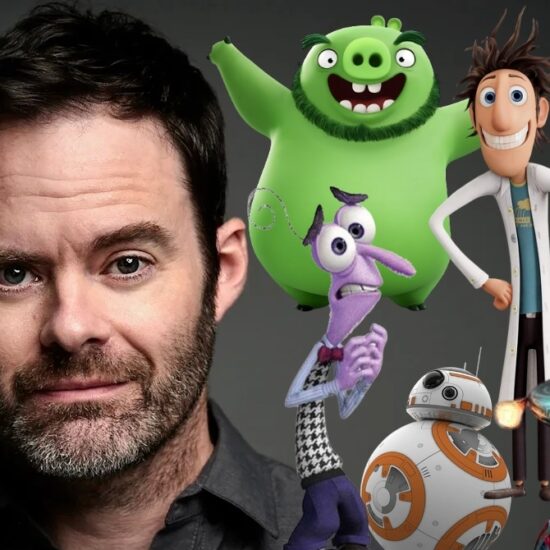
‘Time Share’
If “White Lotus” were directed by Ari Aster, it might look something like this creepy Mexican resort thriller from Sebastián Hofmann. At a snazzy tropical time share recently acquired by a global franchise, Pedro (Luis Gerardo Méndez), his wife and their son encounter a series of mishaps that teeters between amusingly odd and disturbingly sinister.
Their misfortunes begin when they’ve barely arrived for their vacation and learn that their villa has been double-booked. Faced with a comically inept staff, they now have to share the house with a rube-ish family of five. Meanwhile, in the bowels of the resort, a depressed laundry worker, Andres (Miguel Rodarte), and his saleswoman wife, Gloria (Montserrat Marañon), are being put through some strange training program by their new American executives, who want to mine the couple’s traumas for profit-making schemes.
The ruthlessness of global capitalism, the emotional labor of the hospitality industry and the fragility of masculinity all become targets of Hofmann’s slippery satire, which derives its power from its ambiguities. Is Pedro right in suspecting his newfound roommates of foul play, or is his patriarchal pride just wounded? Is Andres being controlled by his bosses or rightfully treated for an illness? There are no clear answers in “Time Share,” but the film will leave you deliciously confused, unsettled and wary of the charms of vacation resorts.
Marcus Lenz’s border-crossing feature is a film of quiet surprises and formidable performances. “Rival” opens in rural Ukraine, where 9-year-old, freckle-faced Roman (Yelizar Nazarenko) is suddenly pulled out of his life of play when his grandmother dies. Soon, he is smuggled in the back of a truck to Germany, where his mother (Maria Bruni) works — without papers — as a caretaker for a newly widowed elderly man, Gert (Udo Samel). When Roman realizes that Gert might soon become his stepfather, he begins to lash out, until a gutting rug-pull sends the man and the boy on the run together.
For all its high-stakes plotting, “Rival” is an extraordinarily gentle film that dwells in wordless moments of connection, particularly as Gert and Roman, who do not speak each other’s languages, try to communicate. If Gert seems a little seedy at first, he turns out to be wonderfully tender; Roman, with his wide blue eyes and feral love for his mother, is menacingly unpredictable yet fiercely lovable — a child caught in a world of loss he doesn’t understand. Through the boy’s naïve gaze, Lenz sketches out the precarity of contemporary immigrant life, leaving us not with hope or resolution, but only a childlike rage against the world.
‘Beatrix’
Summer is a time of both joy and melancholy: brimming with sunshine and leisure, yet ephemeral and transitory, a fleeting prelude to the harshness of winter. This debut feature by the Austrian directors Milena Czernovsky and Lilith Kraxner distills that bittersweet mood perfectly. It drops us into the daily routines of a young woman, Beatrix (Eva Sommer), who is biding the dog days alone in a beautiful country home that doesn’t seem to be her own. There is something slightly out of place and hesitant about the way she goes around the house, as if she is slowly learning its surfaces.
We simply observe Beatrix as she mills about, watches TV, feeds the cat, takes phone calls and occasionally has friends over for dinner. Their conversations are not about anything in particular, and the film doesn’t enlighten us about Beatrix’s back story or desires. Instead, we are invited to simply feel the passing of time alongside her, in colorful, saturated tableaux that heighten the tactility of her verdant surroundings. Little happens per se, yet “Beatrix” leaves you feeling both sated and light, as after a summer lunch — glad for having experienced it and a little sad that it’s over.
‘Lola’
This debut feature from the Irish director Andrew Legge is a marvel of lo-fi sci-fi, that microgenre of speculative cinema that conjures grand, fantastical worlds from the simplest of materials. Here, archival newsreels and black-and-white 16-millimeter footage transport us to 1940s Sussex, England, where a pair of orphaned sisters — Martha (Stefanie Martini) and Thomasina (Emma Appleton) — have invented a device that can intercept radio and television broadcasts from the future. They call it Lola, and use it to tune into music and pop culture years away — Bob Dylan is a revelation, as is David Bowie — until they realize that their janky gadget could have groundbreaking implications for the war effort.
They quickly run into the classic conundrums of time-travel tales: Their God-like ability to anticipate and tweak the future sets off unintended consequences and unfurls a revisionist version of World War II. What’s remarkable is the film’s minimalist elegance in bringing these ideas to life. Digitally altered newsreels insert the characters into history, while intimate, mockumentary-style camerawork creates the illusion of having stumbled upon an authentic time capsule from the past.
Valentina Maurel’s sunbaked Costa Rican drama takes a familiar genre — the coming-of-age of a teenage girl — and spikes it with poetry, beauty and violence. Sixteen-year-old Eva (Daniela Marín Navarro) struggles with the fallout from her parents’ divorce. She and her sister live with their well-to-do mother, whom Eva irrationally resents, while she idealizes her father, a hippie poet with anger issues. Stability and wisdom on one side, danger and wild freedom on the other — it’s no surprise that Eva chooses the latter, but her mom is prescient when she says, “The obsession you have with your dad, and all the men that come your way, is something that’ll pass, mark my words!”
A combustible feeling of naturalism courses through “I Have Electric Dreams.” The hand-held camera traipses around restlessly, following Eva, and the actors — particularly Reinaldo Amien Gutiérrez as the father — embody a capriciousness that makes their characters impossible to pin down. The result is a film that feels wholly, messily human, with its empathetic yet cleareyed visions of the love and hurt that often tangle together in families, binding us to our kin almost in spite of ourselves.













